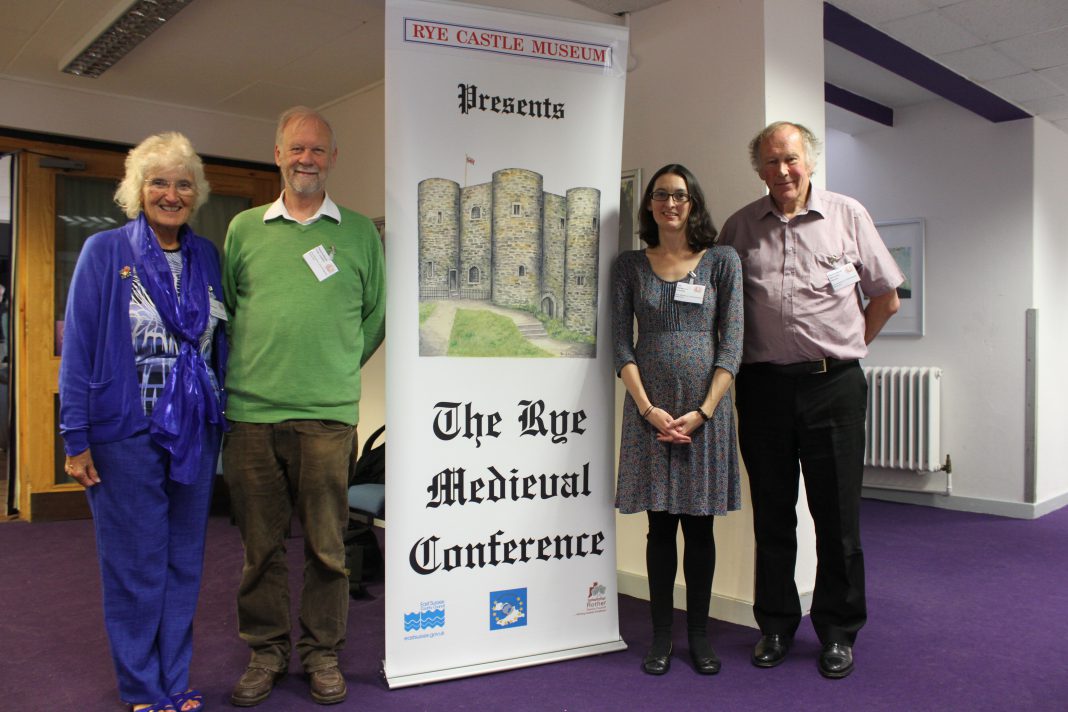A banking collapse, war, pestilence and climate change. Surely these are the ills of the 21st century. But, no, this was the Rye Medieval Conference at the Milligan Theatre last Saturday (October 18) – and, sure enough, all these problems, highlighted in a slideshow, occurred in the 14th century.
Two banks in Florence went bust when they loaned Edward III of England two large amounts which he refused to repay. The 100 years war started in 1337. The Black Plague swept through Europe every few years reducing the population by about 50 per cent. There were volcanic eruptions that put huge clouds of dust into the atmosphere and changed the climate. This caused a big reduction in crops and famine.
They even had food scandals in those days. Butchers would put bits of fat held by wooden pegs on the outside of pieces of lamb or stuff a joint with pieces of cloth. If and when they were caught they were fined and put in the stocks. Butchers beware! Rye has a set of stocks by the Ypres Tower.
After the Black Death hit, towns were responsible for food hygiene. The town councils set in place rules to ensure that food traders kept their stalls clean and sold food that was wholesome. Power devolved to local councils. Do we need more of that today?
The speakers, who each had an hour, were excellent – which was shown by the interesting questions from the audience. The conference was organised by the Rye Castle Museum, whose chairman Jo Kirkham gave particular thanks to Professor Michael Hicks, who had arranged the speakers. A team of students from Rye College and Rye Studio School helped in various ways during the day.
The sponsors were Rye Academy Trust – for use of the Milligan Theatre and school facilities, entertainment workshop and technical support – and the Rye Fund. The sixth biennial conference will take place in 2016.
Photo: Ray Prewer



